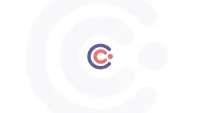
Advanced Training Course in Science Journalism 20 
This advanced training course in science journalism will teach you how to use modern tools and techniques to write good science news and feature stories. You will learn the best tools and techniques to suit your science writing strategies, as well as how to become self-employed as a freelance science communicator in the 8 core areas. You will also gain clarity on which areas to choose for your further career with a template-based self-assessment. Additionally, you will learn the ins and outs of digital content publishing and how to make cost-effective content promotion strategies. ▼
ADVERTISEMENT
Course Feature
![]() Cost:
Cost:
Paid
![]() Provider:
Provider:
Udemy
![]() Certificate:
Certificate:
No Information
![]() Language:
Language:
English
![]() Start Date:
Start Date:
Self Paced
Course Overview
❗The content presented here is sourced directly from Udemy platform. For comprehensive course details, including enrollment information, simply click on the 'Go to class' link on our website.
Updated in [April 24th, 2023]
The Advanced Training Course in Science Journalism 20 provides an in-depth look at how to use modern tools and techniques for writing good science news and feature stories. Participants will gain an understanding of the tools and techniques that best suit their science writing strategies, as well as how to become self-employed as a freelance science communicator in the 8 core areas. Additionally, the course will provide a template-based self-assessment to help participants become clear about which areas to choose for their further career. Furthermore, participants will learn the ins and outs of digital content publishing, as well as how to make cost-effective content promotion strategies.
[Applications]
Those who have completed the Advanced Training Course in Science Journalism 20 will be able to apply their knowledge to create compelling science news and feature stories. They will be able to use modern tools and techniques to craft stories that are engaging and informative. Additionally, they will be able to become self-employed as a freelance science communicator in the 8 core areas, and will be able to make cost-effective content promotion strategies. Furthermore, they will be able to assess their own skills and abilities in order to determine which areas of science writing they should focus on for their career.
[Career Paths]
1. Science Writer: Science writers are responsible for researching and writing about scientific topics for a variety of audiences. They must be able to interpret complex scientific information and present it in an engaging and accessible way. As the demand for science-related content increases, the need for science writers is expected to grow.
2. Science Communicator: Science communicators are responsible for creating and delivering science-related content to a variety of audiences. They must be able to effectively communicate complex scientific information in an engaging and accessible way. As the demand for science-related content increases, the need for science communicators is expected to grow.
3. Digital Content Publisher: Digital content publishers are responsible for creating and publishing digital content related to science. They must be able to create content that is engaging and accessible to a variety of audiences. As the demand for digital content increases, the need for digital content publishers is expected to grow.
4. Content Promotion Strategist: Content promotion strategists are responsible for creating and executing cost-effective content promotion strategies. They must be able to identify the most effective channels for promoting content and develop strategies to maximize reach and engagement. As the demand for content promotion increases, the need for content promotion strategists is expected to grow.
[Education Paths]
1. Bachelor of Science in Journalism: This degree program provides students with the skills and knowledge necessary to become successful science journalists. Students learn how to research, write, and edit stories about science topics, as well as how to use digital tools and techniques to create compelling content. The degree also covers topics such as media law, ethics, and public relations. This degree is becoming increasingly popular as the demand for science journalism grows.
2. Master of Science in Science Communication: This degree program focuses on the communication of science topics to a variety of audiences. Students learn how to effectively communicate scientific concepts to the public, as well as how to use digital tools and techniques to create engaging content. The degree also covers topics such as media law, ethics, and public relations. This degree is becoming increasingly popular as the demand for science communicators grows.
3. Doctor of Philosophy in Science Journalism: This degree program provides students with the skills and knowledge necessary to become successful science journalists. Students learn how to research, write, and edit stories about science topics, as well as how to use digital tools and techniques to create compelling content. The degree also covers topics such as media law, ethics, and public relations. This degree is becoming increasingly popular as the demand for science journalism grows.
4. Master of Arts in Science Writing: This degree program focuses on the writing of science topics for a variety of audiences. Students learn how to effectively communicate scientific concepts to the public, as well as how to use digital tools and techniques to create engaging content. The degree also covers topics such as media law, ethics, and public relations. This degree is becoming increasingly popular as the demand for science writers grows.
Course Provider

Provider Udemy's Stats at AZClass
Discussion and Reviews
0.0 (Based on 0 reviews)
Explore Similar Online Courses

Develop Python Plugins for QGIS (Version 3)

Foundations of Digital Consumer Search and Marketing

Python for Informatics: Exploring Information

Social Network Analysis

Introduction to Systematic Review and Meta-Analysis

The Analytics Edge

DCO042 - Python For Informatics

Causal Diagrams: Draw Your Assumptions Before Your Conclusions

Whole genome sequencing of bacterial genomes - tools and applications


Start your review of Advanced Training Course in Science Journalism 20